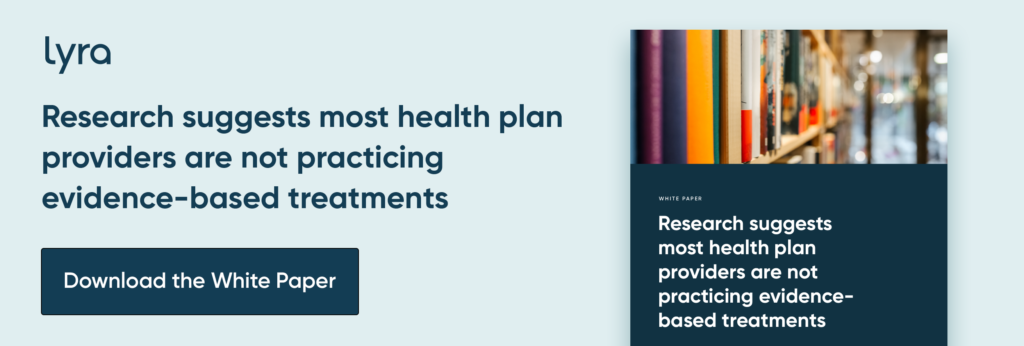The Lack of Evidence-Based Therapies in Health Plan Networks
October 29, 2019
In 2019, access to therapy remains a major problem for the roughly one in five U.S. adults with a mental illness, even as more than three-fourths of Americans say mental health is as important as physical health. But even for those who are able to overcome the many barriers to finding a therapist, the prospect of receiving high-quality care is far from guaranteed. Not all therapies are created equal – in fact, some 80 percent of psychotherapies in the market are not evidence-based.
Evidence-based therapies, or EBTs, are those that have been rigorously tested in randomized controlled trials or a series of case studies and proven effective or superior to existing treatments. Some examples of EBTs include cognitive behavioral therapy (CBT), interpersonal therapy, and behavioral activation. These empirically supported treatments represent the best opportunity to help most clients with behavioral health problems. Yet, many health care providers aren’t practicing EBTs, instead opting for therapies that are are not backed by evidence, or worse, have been shown to cause harm.
In an effort to better understand the types of therapies being practiced by providers in major health care networks, a team of Lyra clinicians recently surveyed several hundred therapy providers in a major health insurance network. The study revealed an alarming number of providers who are failing to provide evidence-based care.
To learn more about the study’s findings, plus why evidence-based therapies are so essential, download our latest white paper below.
Explore additional blogs

Mental health at work
How to Spark Intrinsic Motivation on Your Team

Mental health at work
From Human Resources to Whole Humans: Rethinking Productivity With Trevor Noah

Mental health at work
